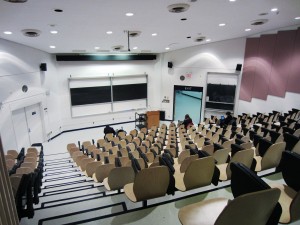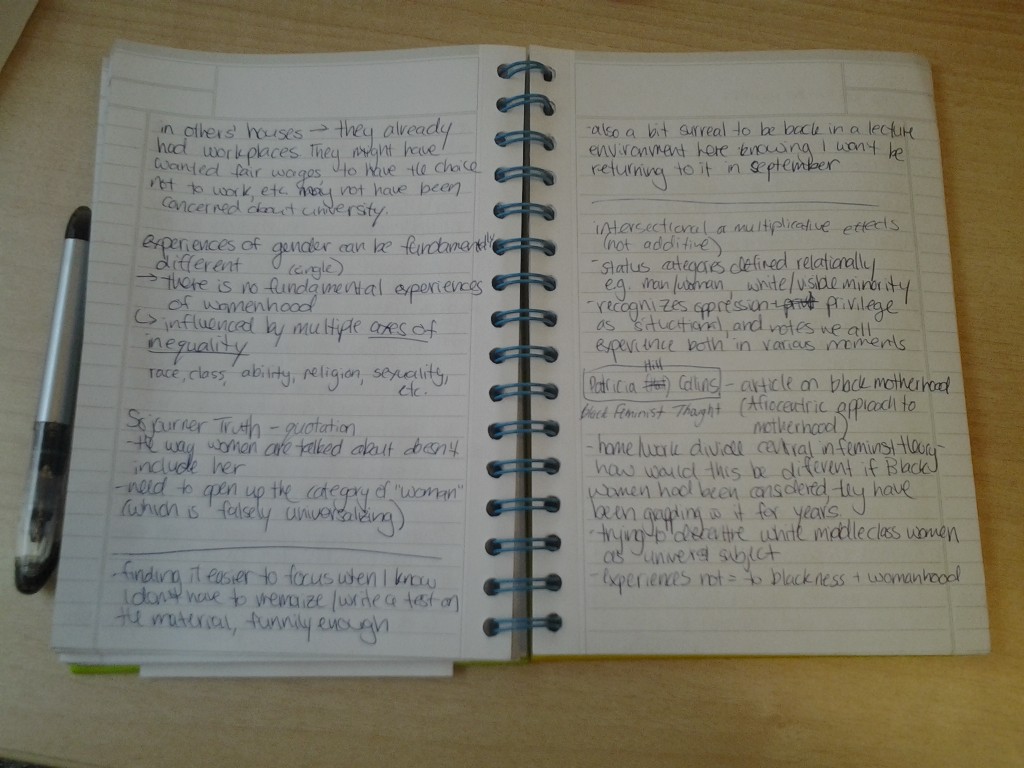Have you ever flipped through the course calendar excitedly, wishing you somehow could take dozens more courses (somehow without increasing your work or debt load)? It can’t just be me! As someone who switched around her program a fair number of times, I didn’t get many opportunities to take courses in different departments just because they sounded interesting.
There’s an easy way to satisfy your urge to try something different: auditing! Auditing a course means that you attend the lectures to absorb and engage with the material, but you are not formally a student in the class. That means no essays, no exams and no obligations: you could go once or sit in on an entire semester. In the spirit of trying new things that I began last week, I decided to audit a course in a department I have never taken any courses in.

First, some logistics: use the course calendar and timetable to find something you are interested in that fits your schedule. Room locations are posted in the timetable, and it’s a good idea to look up the rooms and how many people they fit on this handy Academic and Campus Events website. You’ll want to pick a class in a mid-to-large size room, as they’re more likely to have some extra seats than a small seminar room.
It’s generally a good idea to let the professor know that you’re interested in auditing the course, especially if you will be attending every lecture and the class is small. (Psst: no one will notice if you slip into a large auditorium with extra empty seats!) Note that you probably won’t have access to a syllabus because only students enrolled in a class can access material on Blackboard.
The course I chose to audit was SOC 265: Gender and Society. I’ve always been intrigued by sociology. Though the field concerns many of the same concepts as my psychology major (I took a course in the psychology of gender in my fourth year), I thought that it would be interesting to look at the social systems around it, rather than how it affects an individual.
The main thing I noticed was that it was actually easier to focus and pay attention when I knew that I didn’t have to memorize the material, and instead could engage with it on my own terms. I was able to take notes on points that seemed important or fascinating, rather than trying to capture everything the professor said. Later in the week, I read some of the books mentioned in lecture and found it a much more enriching experience than whipping through a chapter the week before a test.
I’m hoping to take some of this mind set with me when I take grad school courses in the fall. Of course I won’t be able to opt out of exams, and will inevitably have to speed through some readings faster than I’d like, but remembering to appreciate actual learning over performance will help me stay relaxed and focused. Funnily enough, I’ll probably do better too.
In the name of trying new things, next week I'll be going to the Hart House gym for the first time - on Saturday June 7, you can get free access to the gym for National Health and Fitness Day!

Great idea! Summer time is a good time to audit since we are not busy with our courses. Where do you find the information on courses and their rooms? Could you send me a link? Thanks!
For Arts & Science courses, you can find descriptions of each course in the Academic Calendar: http://www.artsandscience.utoronto.ca/ofr/calendar/
To find out which courses are offered in the summer, and when and where they are, check out the Summer Timetable: http://www.artsandscience.utoronto.ca/ofr/timetable/summer/deptlist.html
Happy auditing!